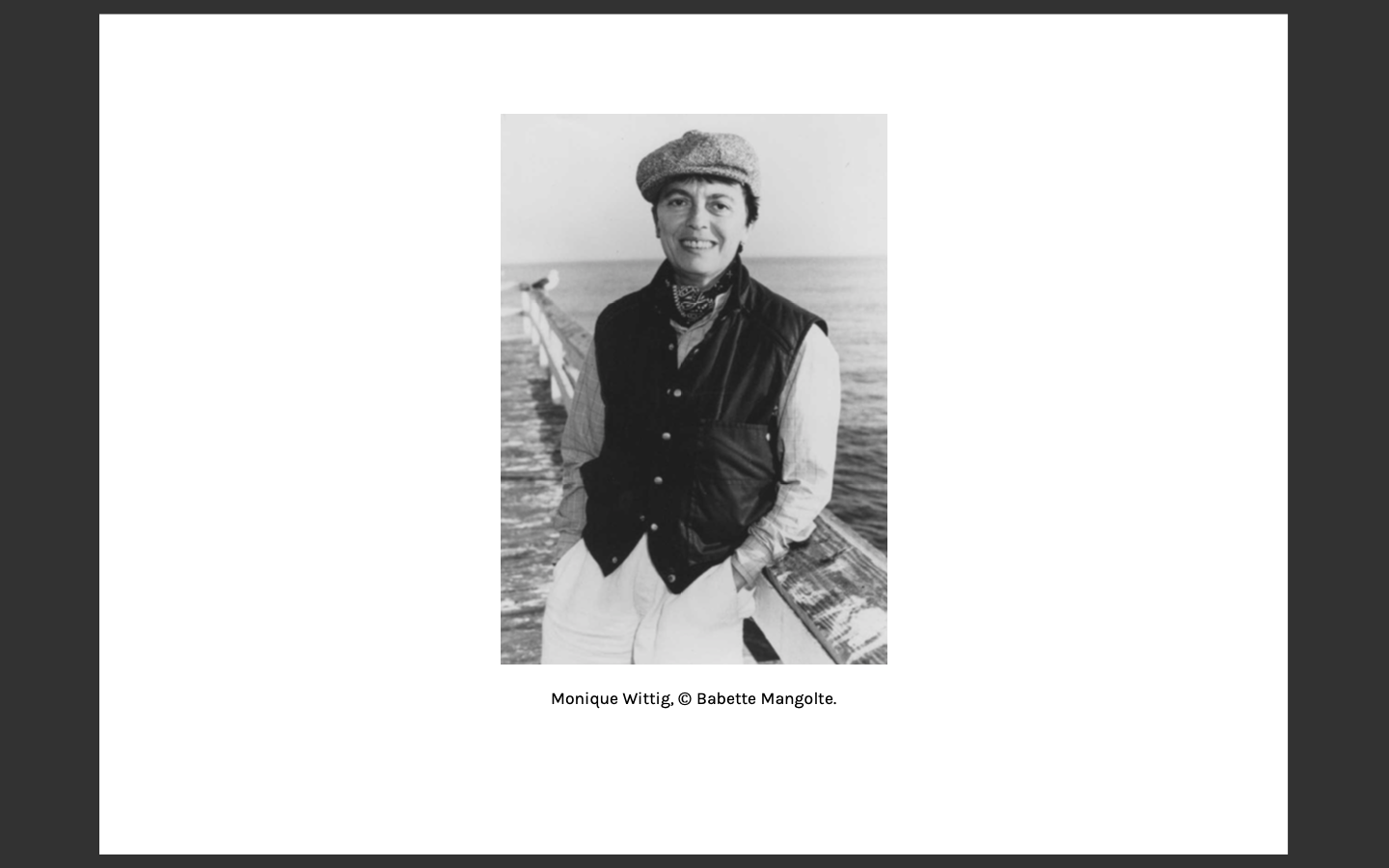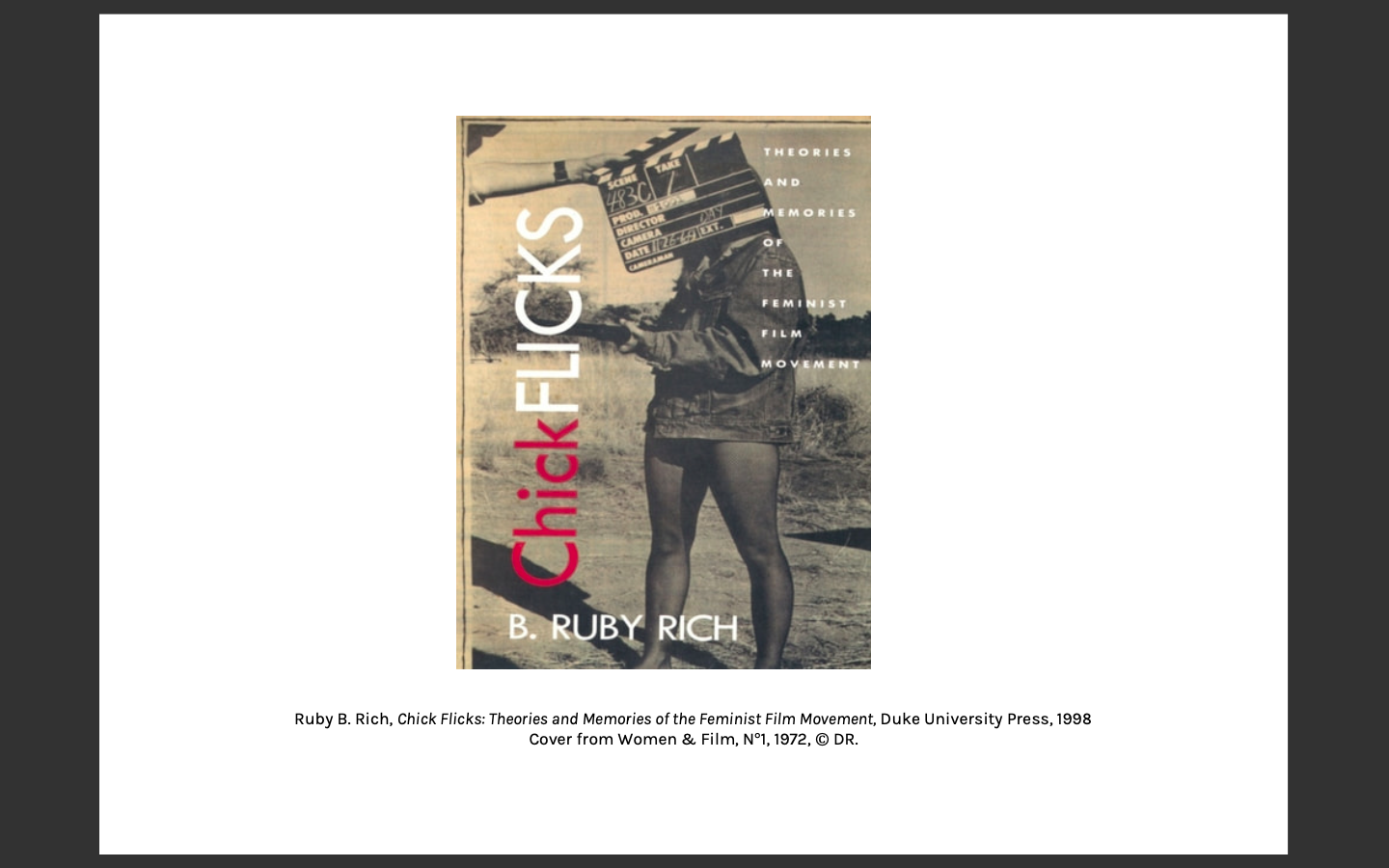︎ Conférence : Statement 1990 : Introduction à un cinéma queer, University of California, Berkeley, USA.
“Statement 1990 : introduction à un cinéma queer” entend apporter un focus inédit sur l’artiste nord-américaine Yvonne Rainertout en identifiant et célébrant l’influence des écrits de Monique Wittig dans son parcours de vie et de création. Danseuse, chorégraphe et cinéaste, Yvonne Rainer est une artiste fondamentale de l’avant-garde newyorkaise comme de l’histoire de l’art et de la danse au XXème siècle. Fondatrice du Judson Dance Theater, actif entre 1962 et 1964, au cœur de Manhattan, elle est à l’origine de la danse post-moderne à travers laquelle elle déconstruit les codes normatifs de la danse en tant que spectacle basé sur une virtuosité technique, mais aussi une complicité tacite et partagée entre interprète, chorégraphe et public. Fait moins reconnu et pourtant constitutif de son parcours exceptionnel, c’est une autrice et une lectrice avérée. Partie intégrante du processus créatif, la lecture est à envisager mais surtout à revaloriser comme possibilité d’auto-éducation, d’auto-apprentissage, vecteur en ce sens d’une forme d’élocution voire d’émancipation. Et, c’est bien à travers l’acte de lire que l’américaine, a su construire note après note, essai après essai, long-métrage après long-métrage, une pensée critique exposant un féminisme matérialiste et plus tard lesbien argumenté par sa lecture, son interprétation et finalement son appropriation des écrits de Monique Wittig préfigurant à ce titre un cinéma queer.




︎ Lecture : Statement 1990 : Introduction to a Queer Cinema, University of California, Berkeley, USA.
"Statement 1990: An Introduction to Queer Cinema" focuses on the position of North American artist Yvonne Rainer as a reader while identifying and celebrating the influence of Monique Wittig's writings in her art and life as an artist. Dancer, choreographer, and filmmaker Yvonne Rainer is a fundamental participant in the New York avant-garde and a crucial artist in the history of art and dance in the 20th century. Founding member of the Judson Dance Theater, active between 1962 and 1964, in the heart of Manhattan, she is at the origin of post-modern dance through which she deconstructed the normative codes of dance as a spectacle based on technical virtuosity, but also a tacit and shared complicity, between performer, choreographer, and audience. Less recognized and yet constitutive of her exceptional career, she is an avid author and reader.
An integral part of the creative process, reading is to be considered and revalorized as a possibility of self-education of self-learning, vector in this sense of a form of elocution and even emancipation. And, it is indeed through the act of reading that the American artist knew how to build note after note, essay after essay, film after film, a critical thought exposing materialist feminism and later lesbian argued by its reading, its interpretation her reading, her interpretation and finally her appropriation of the writings of Monique Wittig prefiguring in this way a queer cinema.



